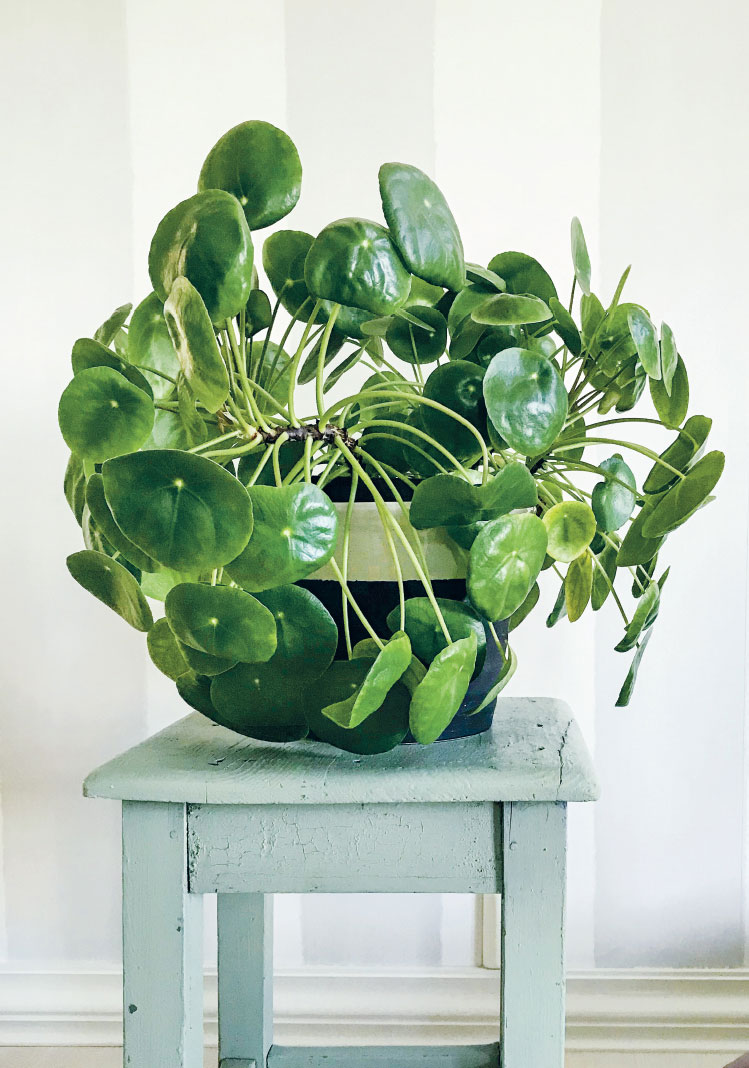 LIGHT
LIGHTChinese money plant Pilea peperomioides
We have many names for the things we love – and this distinctive plant, in recent years the IT star of the plant world, is known as the Chinese money plant, pancake plant, UFO plant and missionary plant. With its long stems and beautiful round, dark-green leaves, the elegant Chinese money plant is the epitome of urban chic. It has long been popular in Scandinavia, thanks to its introduction from China by the Norwegian Agnar Espegren.
 LIGHT
LIGHT
The Chinese money plant needs lots of light, so it can be placed directly in the window. Avoid direct sunlight during the summer, as this may damage the leaves.
 WATERING
WATERING
It likes high humidity and weekly watering during the warmer months. Go easy during the winter, when you should allow the soil to dry out between waterings.
 SOIL
SOIL
Use ordinary potting compost, but it will also do OK in seed or cactus and succulent compost. Give it good drainage, with holes in the bottom of the container, perhaps with some leca balls as a bottom layer.
 FEEDING
FEEDING
Feed with a liquid organic plant food two to three times a month during the spring and summer. It needs little or no food during the winter months.
 ORIGIN
ORIGIN
Originally from Yunnan province in southern China, the Chinese money plant grows wild in damp forests at heights of 1,500–3,000m (5,000–10,000ft).
 MISCELLANEOUS
MISCELLANEOUS
In warmer months, it can flower in the form of large clusters of tiny yellow-green flowers. It is easy to propagate from suckers.
